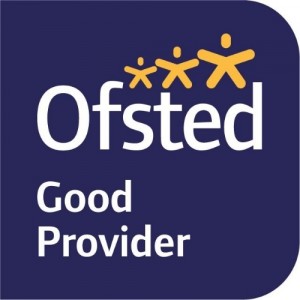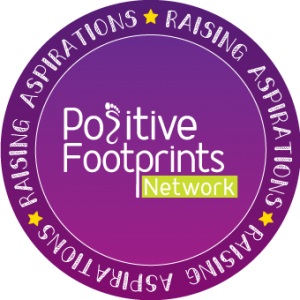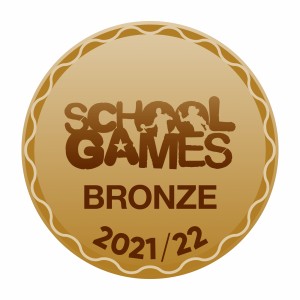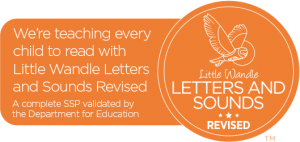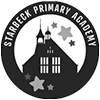More in this section...
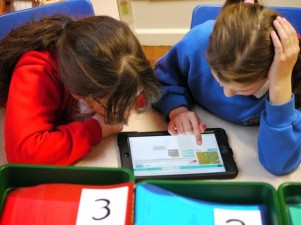 Curriculum
Curriculum
Key Stages
Primary age children are organised into different ‘Key Stages’ and the curriculum is geared towards the learning and development needs of children at each stage:
Early Years Foundation Stage: This covers children from Birth to age 5. At Starbeck school, this is children who are in Nursery and in Reception up to age 5.
Key Stage 1: Children in Years 1 and 2
Key Stage 2: Children in Years 3, 4, 5 and 6.
Curriculum
The primary intention of our curriculum is in line with our school vision - Include, Inspire and Achieve. Development of key learning behaviours is the core of all learning to ensure that learning is deep and embedded. Specific teaching of key aspects of learning – empathy, managing feelings, self-confidence, motivation and social skills underpin all learning. We ensure that learning is based around engaging and fun topics and themes and in addition to class-based learning, we ensure that there is a whole school entitlement for all children to learn outside the classroom.
We follow the National Curriculum in years 1 to 6. This is composed of the eleven subjects; English, Mathematics, Science, Art and Design, Computing, Design and Technology, History, Geography, Languages, Music and Physical Education.
Religious Education is a statutory subject with the agreed syllabus determined by North Yorkshire's SACRE (Standing Advisory Council for Religious Education).
Personal, Social, Health and Citizenship Education (PSHCE) are also taught on a weekly basis.
Early Years Foundation Stage
Our Early Years curriculum follows the DfE Development Matters guidance. For full details of our EYFS provision, read our school statement here.
Phonics and Early Reading
For full details for our Phonics and Early Reading provision - please see our full policy here.
English
Aims and objectives
The study of English develops children’s abilities to listen, speak, read and write for a wide range of purposes, using language to share and communicate ideas, views and feelings. It enables children to express themselves creatively and imaginatively, as they become enthusiastic and critical readers of stories, poetry and drama, as well as non-fiction and media texts. Children gain an understanding of how language works by looking at and discussing its patterns, structures and origins.
Reading
From Y1 onwards, reading is taught using the VIPERS approach of whole class Guided Reading. This approach covers the key strands of reading: Vocabulary, Inference, Prediction, Explanation, Retrieval and Sequencing (KS1) or Summarising (KS2). Pupils will have regular opportunities to engage in independent and shared reading and teachers provide pupils with daily read aloud sessions where pupils will be encouraged to respond to the text in a variety of different ways. The goal of guided reading is to enable learners to become independent, able readers, who understand and appreciate texts on their own without the teacher’s help. Class teachers plan a guided reading schedule to ensure they have built in opportunities to listen to all pupils read.
Cross-curricular reading at Starbeck
Language is the medium through which we access all learning and at Starbeck we expect English skills to be used in all areas of the curriculum including mathematics. Much of the reading accessed by the children will have cross-curricular links because it will be linked to thematic work in a variety of different subjects including science, history and geography. Whole class guided reading texts are carefully selected to enhance the curriculum and support the children’s knowledge acquisition. Teachers choose whole class shared texts and reading books which reflect a wide range of cross curricular links, especially PSHE. Teachers will seek to take advantage of opportunities to make cross curricular links to the English curriculum as often as possible and also plan for pupils to practise and apply the skills, knowledge and understanding acquired through English lessons to other areas of the curriculum.
Speaking and Listening
Oracy is a key focus throughout Starbeck School and is prioritised in all areas of the curriculum. The quality and variety of language that pupils hear and speak are key factors in developing their vocabulary, grammar and understanding for reading and writing. Pupils will be assisted in making their thinking clear to themselves and to others and teachers will ensure they build secure foundations by using discussion to probe and remedy misconceptions. Pupils will also be taught to understand and use the conventions for discussion and debate.
Spelling, Punctuation and Grammar (SPaG)
We incorporate the teaching and learning of these areas into our reading and writing lessons or teach them discretely when children are learning a new skill or gaining new knowledge. Children are also involved in daily lessons to revise, learn and practise their spelling knowledge in context through the use of the ‘Spelling Shed’ spelling scheme from Year 2. Lessons are based around talk and discussion activities which promote children’s observation and use of words. As well as being very actively involved in their learning, pupils are given tools and techniques to learn how to learn about spelling, rather than remembering lists.
Writing
Writing is taught through the teaching approach Jane Considine’s ‘Write Stuff’. In daily lessons, teachers initiate pupil interest and engagement through a variety of different media, e.g. quality texts, drama, artefacts, music, film, pictures, newspaper articles. Sentences are modelled by the teacher and written by the pupil over a series of lessons and there is then the opportunity for children to practise a given skill. ‘Experience sessions’ are planned in along the way to enhance the children’s understanding of the genre, e.g., film, drama, reading comprehensions. The children use their learned skills in short burst writing throughout a unit and a longer sustained pieces of independent writing at the end.
Handwriting
We use ‘Letter-Join’ as the basis of our handwriting policy that covers all the requirements of the 2014 National Curriculum. At the end of Key Stage 2 all pupils should have the ability to produce fluent, legible joined-up handwriting, and to understand the different forms of handwriting used for different purposes. We aim to make handwriting an automatic process that does not interfere with creative and mental thinking. Children are encouraged to write cursively from an early age and to practice the correct formations including the ‘lead-ins’. By Year Two we expect most children to be writing with a legible cursive style where the letters are of a regular size.
Maths
Our curriculum follows the White Rose scheme of work. Planning is carefully crafted into ‘small steps’ which are taught separately to ensure pupils develop a deeper understanding and ‘master’ mathematical concepts. Fluency, reasoning and problem-solving as well as conceptual understanding are key elements of everyday maths lessons.
Each day includes also includes a ‘Fluent in five’ session. This is a ten-minute session where children respond to five Arithmetic maths questions which have been carefully planned to recap concepts, practice facts and develop fluency.
Mental maths
Alongside everyday mathematics teaching, we use a whole-school approach to learning KIRFs (Key Instant Recall Facts) These are designed to support the development of the mental fluency skills that underpin much of the mathematics curriculum. They are particularly useful when calculating, be it adding, subtracting, multiplying, or dividing. Each year group is allocated up to six facts to focus on throughout the year, in line with the National Curriculum and age-related expectations.
- Maths Mastery at Starbeck
- Key Instant Recall Facts Starbeck Scheme
- Maths White Rose Overviews
- Maths Policy
- Calculation Policy
Foundation Subjects
- Art and Design Statement
- Computing Statement
- Design Technology Statement
- Geography Statement
- History Statement
- PE Statement
- Personal Development
- PSHE Statement
- RE Statement
- Science Statement
Teaching and Learning
At Starbeck Community Primary School, we believe that by involving children in all parts of learning, they will be motivated and more able to achieve. In all lessons we:
- Review and revisit previous learning
- Share the Learning Intention with the pupils so that they know what they are learning and why.
- Discuss steps to successful learning with pupils to ensure all children achieve and make progress within lessons
- Ensure activities will be supported by resources and additional scaffolding or questions/problems so that children can work at the right level for them, whether this is with extra support or more challenge.
- Provide opportunities for collaborative work such as working in groups or with a partner, enabling pupils to develop understanding and reasoning.
- Involve pupils in their own assessment for learning throughout the lesson.
- Mark and evaluate the learning with the pupils using our school marking policy.
- Give pupils opportunities to improve their work further and discuss next steps in their learning.
Assessment
Teachers and teaching assistants continually monitor and assess the progress which children make. This informs the future learning which is planned by the teacher. Progress made is tracked by the teacher and detailed information about each child's achievement, attainment and areas for development are passed from teacher to teacher. This enables staff to provide the developmental approach to learning, which is required.
This information is communicated to parents during parents’ evenings, through the sharing of children’s targets and through the annual report to parents.
School is required to assess the children's progress in relation to the Early Years Foundation Stage Profile and National Curriculum Targets of Attainment throughout Key Stages One and Two. A variety of methods are used to collect the assessment information. These vary from simple discussion and questioning during lessons, to specific assessment tasks and standardised tests in a range of subject areas.
Standard Assessments (SATs)
These nationally prescribed tests are completed by the children towards the end of Key Stages 1 and 2 in Years 2 and 6. The results of these tests, along with teacher assessments, are given to the parents/carers of these children in their end of year reports. The end of Key Stage 2 SATs tests take place in May for Year 6 pupils.
Phonic screening takes place in June in Year 1. Pupils complete a phonic task which checks their understanding of and use of phonics (the sounds made by letters and how these are put together in reading and writing). Pupils who do not ‘meet the standard’ required are assessed again in Year 2 after further phonics teaching.
At the end of the Reception Year, pupils’ achievements are assessed by the teachers, in relation to the Early Learning Goals. These assessments are reported to Parents in the end of year reports.
Reports on Pupil's Progress
Teachers are always happy to discuss your child's progress during the school year, as well as at the more formal parent interviews. Reports are written on all children and given to their parents/carers, near the end of the summer term
Extra-Curricular Activities
A wide range of extra curricular activities are offered to the children in KS2. Details are sent home regarding these.
Home Learning
It is important for children to read at home daily and taking reading books home is encouraged. Children also benefit from having other reading materials at home so that they can practise and extend their reading skills.
Parents/carers should also support their children in learning number bonds to 20 and times tables by heart.
Below is a guide of the type of activities which make up home learning tasks. Class teachers send more details to parents/carers at the start of each year.
- Sharing reading scheme or other books
- Practising phonics and tricky words
- Learning spellings
- Practising times tables
- Completing an activity in their Learning Journal, for example finding as much out as they can about the Tudors
- Completing a task for a competition.
Secondary Transfer
The secondary schools in the area usually hold 'Open Evenings' in the autumn term before the parents/carers and children make selections. Parents state a preference for their choice of school through The local authority admissions process. Year 6 pupils make an introductory visit to their future secondary school. This is usually towards the end of the summer term.
Children from our school usually transfer to Harrogate High School, King James’s and St Aidan's Secondary Schools.
For more information about specific curriculum details, please get in touch via our 'Contact Us' page and we will be happy to provide full details.
Long Term Plans
Starbeck Curriculum Stars
At Starbeck Primary Academy, wellbeing and positive mental health are integral to our curriculum offer. Our Starbeck curriculum stars provide every year group with valuable and fun real-life experiences throughout their time at our school to complement and enhance our curriculum.


